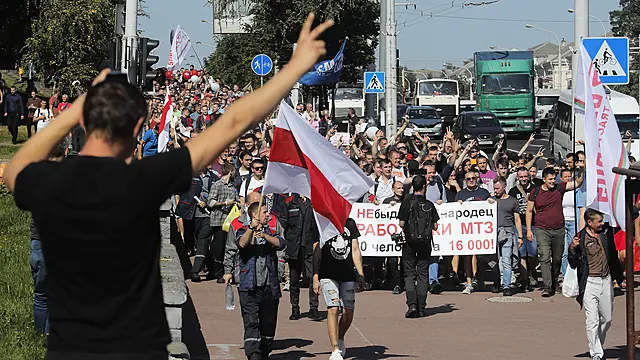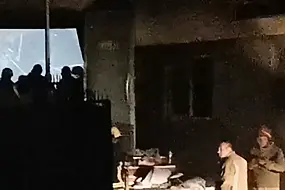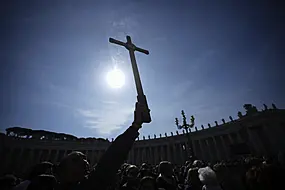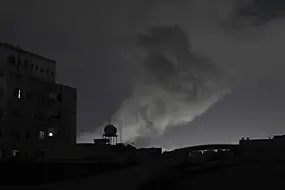More employees joined the strike that began on Monday and encompassed several major tractor factories in Minsk, a huge potash factory in Soligorsk, state television and the country’s most prominent theatre.
The strikes follow nine days of mass protests against election results that handed Mr Lukashenko his sixth term with 80% of the vote, while his top challenger Sviatlana Tsikhanouskaya apparently only received 10%.
“The authorities should understand that they are losing control. Only Lukashenko’s resignation and punishment of those in charge of rigging and beatings (of protesters) can calm us down,” head of an independent miners’ union Yuri Zakharov told The Associated Press on Tuesday.
“The people said their ‘no’ to Lukashenko, and we will not back down. The strike will continue and grow until he steps down.”
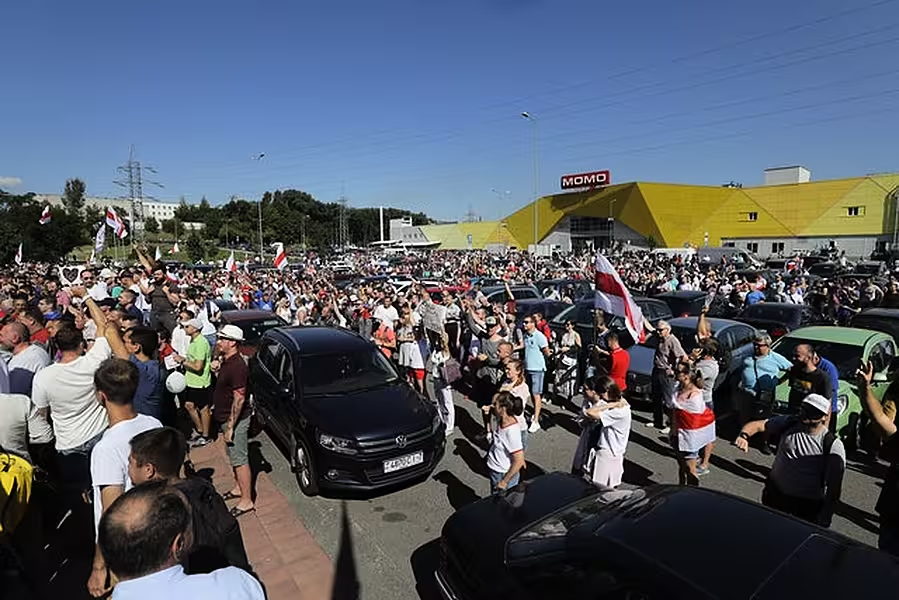
Mr Lukashenko dismissed the strikes as insignificant on Monday and said he will not cave in to pressure but appeared nervous as dissent grew.
The increase in strike action came as the Belarusian ambassador to Slovakia Igor Leshchenya handed in his resignation and politicians in neighbouring Lithuania voted to bring economic sanctions against Belarus.
In a video released on Saturday, Mr Leshchenya expressed “solidarity with those who came out on the streets of Belarusian cities with peaceful marches so that their voice could be heard”.
He said he was shocked by the reports of mass beatings and torture of protesters and accused Belarusian law enforcement of restoring the traditions of the Soviet secret police.
Mr Leshchenya, the first top government official to support the protests against Mr Lukashenko, said in an interview on Tuesday that resigning after that was “a logical move”.
Our goal is to unite society, all of Belarus, so that the Belarusian society has a legitimate institution to negotiate and make demands
Meanwhile, Lithuania’s parliament overwhelmingly voted for the sanctions and said the presidential election must not be internationally recognised.
“We are sending a strong message to the world today,” foreign minister Linas Linkevicius said after the vote.
The mass protests that drew hundreds of thousands of people have continued despite a response from the police, who in the first four days of demonstrations detained almost 7,000 people and injured hundreds with rubber bullets, stun grenades and clubs. At least two protesters have died.
On Tuesday, nearly 1,000 people gathered in front of a theatre to support a troupe that gave notice en masse after the theatre’s director, Pavel Latushko, was dismissed after siding with the protesters.
Ms Tsikhanouskaya left the country for Lithuania in a move her campaign said was made under duress and on Monday she announced she was ready to act as a national leader to facilitate a new election.
Her top ally Maria Kolesnikova said on Tuesday that a “co-ordination council” is being formed to represent the people and negotiate the transition of power.
Mr Lukashenko, who has run the ex-Soviet nation since 1994, bristled at the idea of talks with the opposition but Ms Kolesnikova argued that the embattled president “should hear his society, hear the people – the majority calls him a former (president)”.
“Our goal is to unite society, all of Belarus, so that the Belarusian society has a legitimate institution to negotiate and make demands,” Ms Kolesnikova told the AP on Tuesday.
The council, which will convene for the first time on Tuesday evening, will figure out the best way for transition of power, “be it new elections or some other option”, Ms Kolesnikova said.
Mr Lukashenko said on Monday the country could have a new presidential election but only after approving an amended version of its constitution in a nationwide referendum.
Western officials refused to recognise the election as free or fair and criticised Belarusian authorities for their violent crackdown on protesters.
